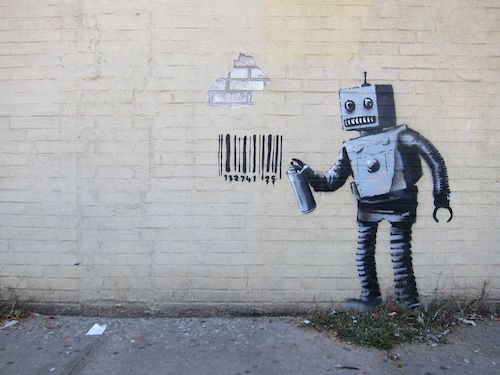 Culture & Ethics
Culture & Ethics
Machines Will Always Be Things, Never "Persons"

In light of transhumanist advocacy for “machine rights,” should artificial intelligence (AI) ever be realized, I decided to weigh in at First Things on the craziness of it all. Machines will always be things, not “persons.” From “AI Machines: Things Not Persons“:
Machines have no dignity and no rights, which properly belong exclusively to the human realm.
Moreover, AI contraptions would only mimic sentience. As inanimate objects, AI contrivances could no more be “harmed” (as distinguished from damaged) than a toaster. Even if the machines were built with human cells or DNA, they would never be integrated biological beings.
Machine rights advocacy is subversively reductionist. It forthrightly diminishes the meaning and unique value of human life.
Peter Singer claims that the brain is just a computer, and so if an AI machine were ever developed, it could be considered a person too. But that’s ridiculous:
The approach here rests in a leveling maneuver. If the brain is a really machine, then any thinking machine deserves the same rights that a working brain possesses. But the human brain — and, more importantly, the mind — is much more than a complex organic computer.
As the Stanford physician and bioethicist William Hurlbut told me, “Human consciousness is not mere computation. It is grounded in our full embodiment and intimately engaged with the neural apparatus associated with feeling and action.” In other words, human thought arises from a complex interaction of reason, emotion, abstract analysis, experience, memories, education, unconscious motivation, body chemistry, and so on.
That can never be true of AI robots. Even if an AI machine were to attain unlimited processing capacities, it wouldn’t be sentient, just hyper-calculating.
Here’s the bottom line:
If we ever accept that machines (or chimpanzees or Old Faithful) “are people too,” our own value would cease to be seen as intrinsic or unique. Human entities would be just like other entities that possess a touch of processing capacity. This is not an act of respect and ennobling lesser beings. It is disrespect of human beings.
There is so much anti-humanism out there. And now the idea is being applied in the context of inanimate objects. I believe this madness must be resisted at every opportunity.
Image by Scott Lynch [CC BY-SA 2.0], via Wikimedia Commons.
